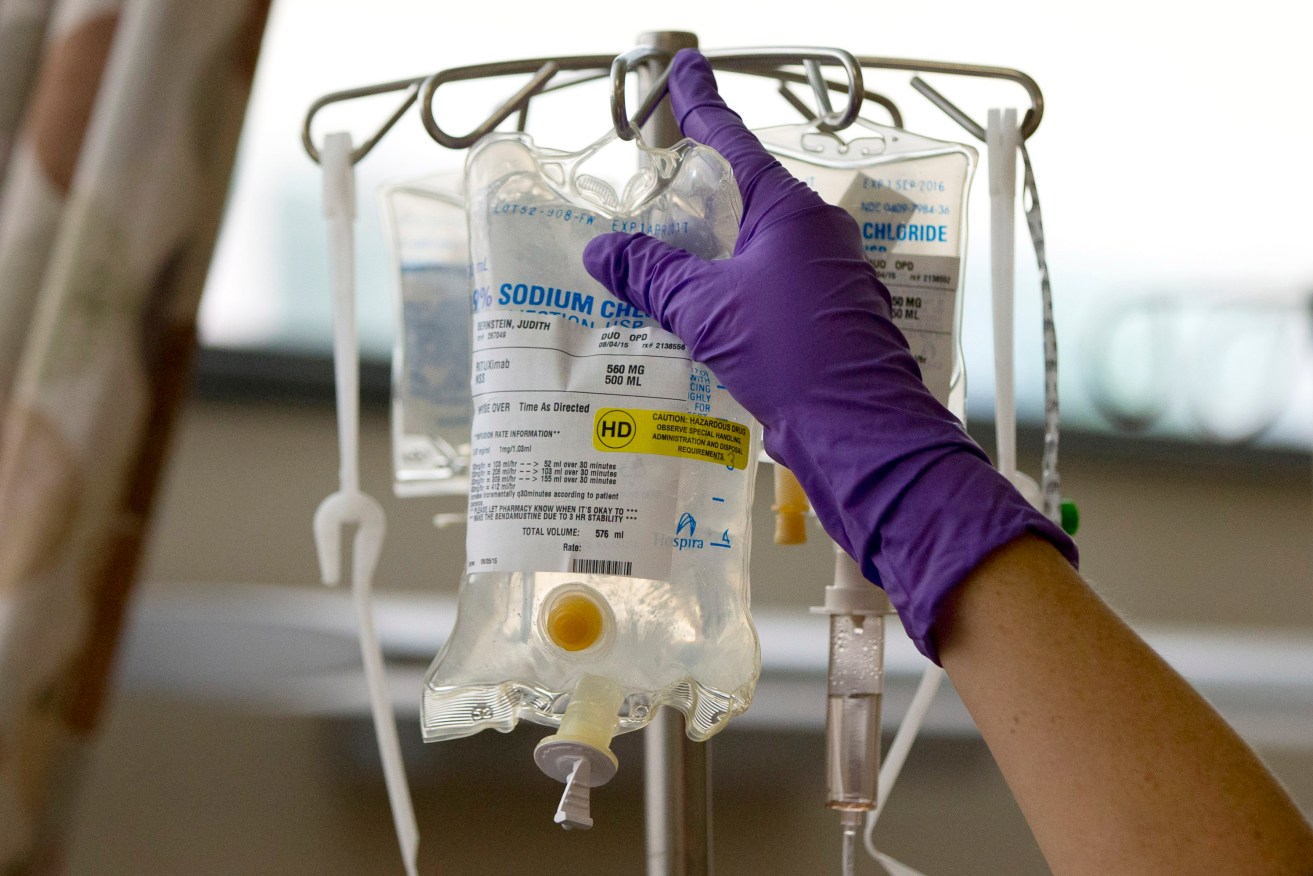Common chemo side-effects more prevalent in women than men
Women experience certain side-effects of chemotherapy including nausea, vomiting and hair loss more frequently than men, according to research on oesophageal and stomach cancer patients.

A nurse sets up a patient's chemotherapy medication. Photo: AP/Matt Rourke
Researchers at the Royal Marsden NHS Foundation Trust said their findings add to the growing body of evidence that gender can be an important factor in cancer treatment.
The study, being presented at the European Society for Medical Oncology Congress in Munich, analysed data from four randomised trials carried out in the UK and Australasia.
All four pieces of research looked at commonly used first-line chemotherapy combinations in advanced oesophageal and stomach cancer.
Data from 1,654 patients (1,328 men and 326 women) showed that women experienced significantly higher rates of nausea and vomiting (89 per cent for women compared with 78 per cent of men) and diarrhoea (54 per cent versus 47 per cent).
Hair loss was also suffered more by women – 81 per cent compared with 74 per cent of men – while mouth ulceration occurred in 50 per cent of women versus 41 per cent of men.
The occurrence of “serious adverse events” during treatment – potentially serious treatment complications which often require hospital admission – was also higher in women.
There was a trend towards more infections in women as a result of low white blood cell counts, although this did not reach statistical significance.
“We have known for a long time in oncology that there are differences between males and females in the incidence and prognosis of many non-gender-specific cancers,” Dr Michael Davidson, clinical research fellow at the Royal Marsden NHS Foundation Trust, said.
“However, we are only just beginning to understand how genetic and biological differences between men and women influence cancer development and response to treatment.”
“This work adds to the growing body of evidence that gender can be an important factor in cancer treatment, and that clinicians need to be aware of such differences,” Professor David Cunningham, director of the NIHR Biomedical Research Centre at the Royal Marsden and the Institute of Cancer Research, London, said.
– PA




